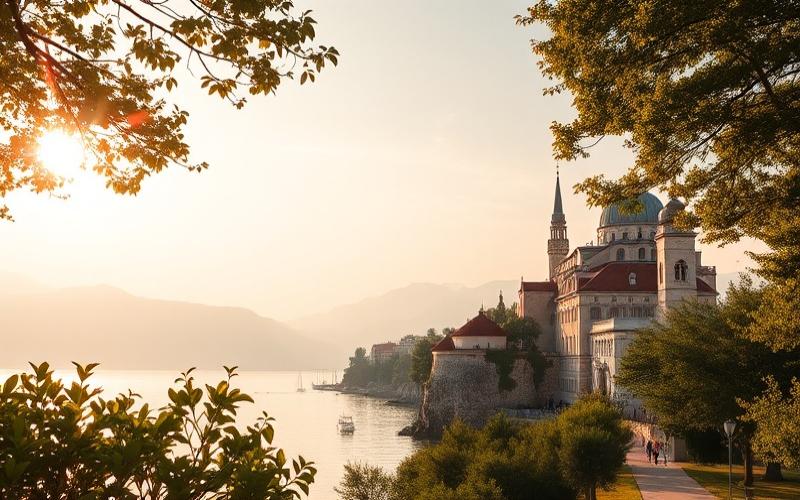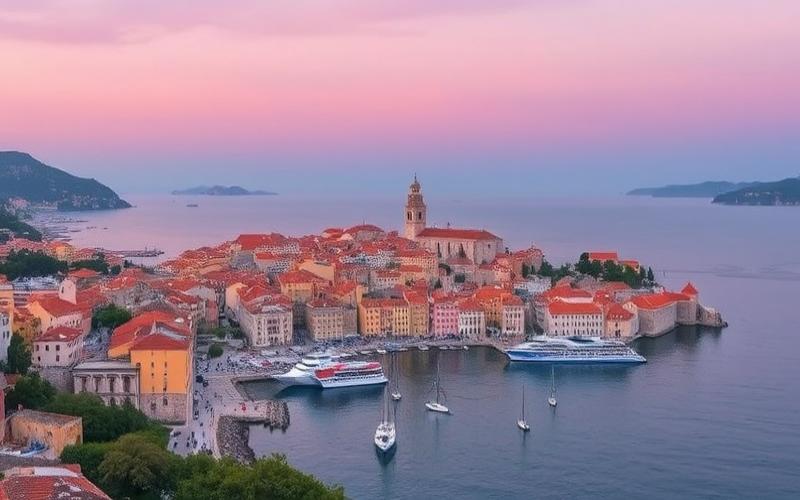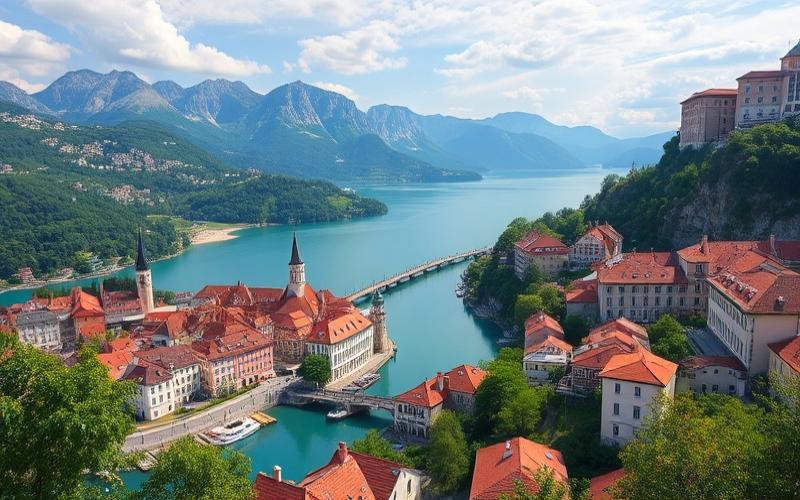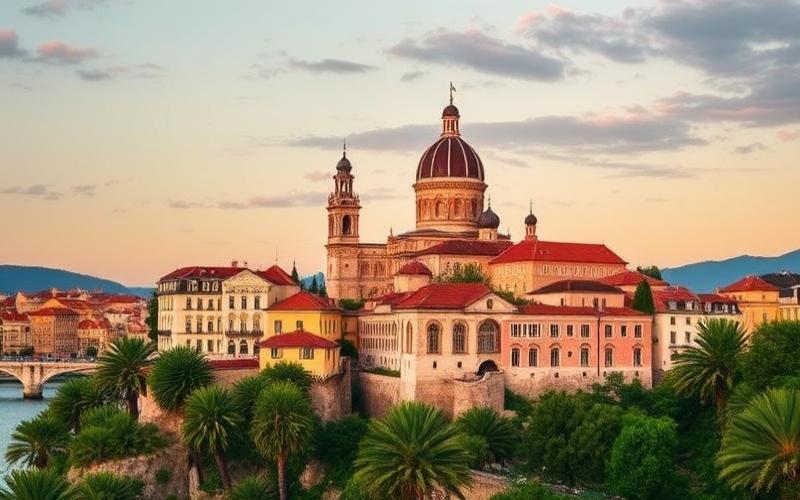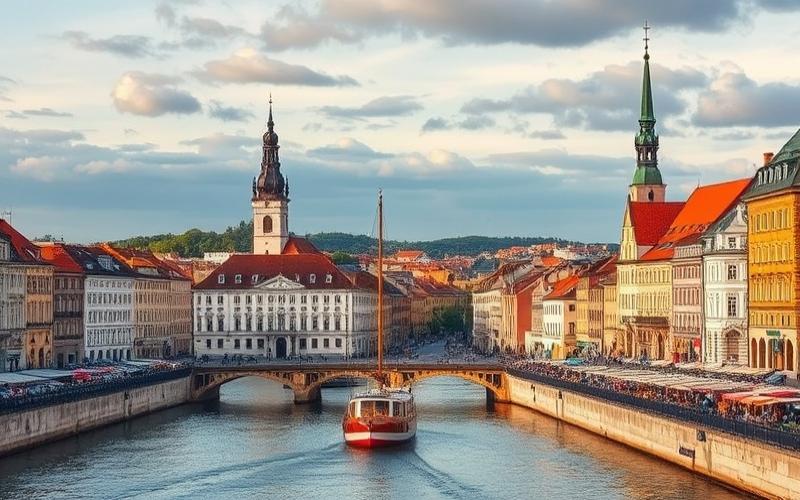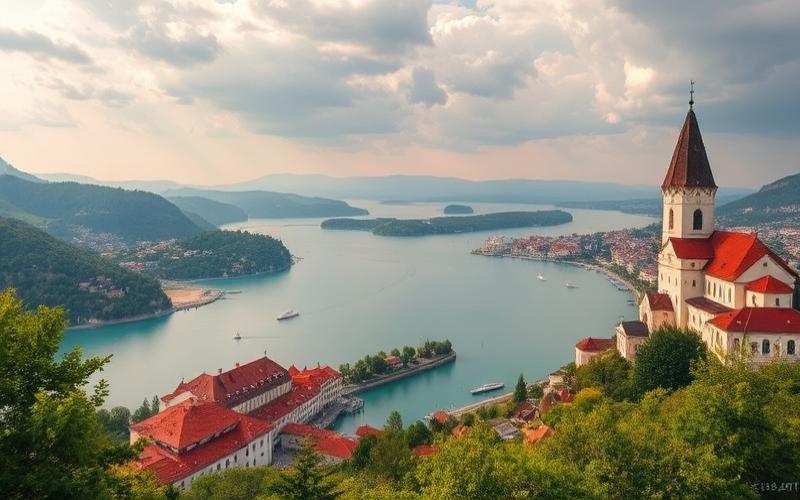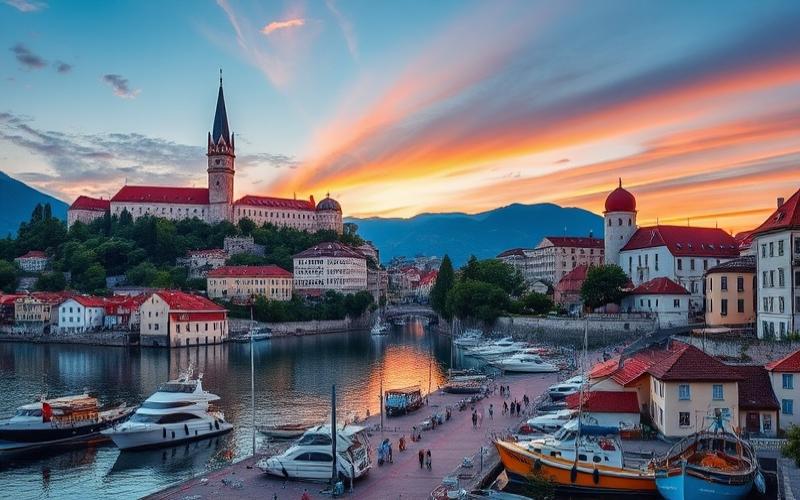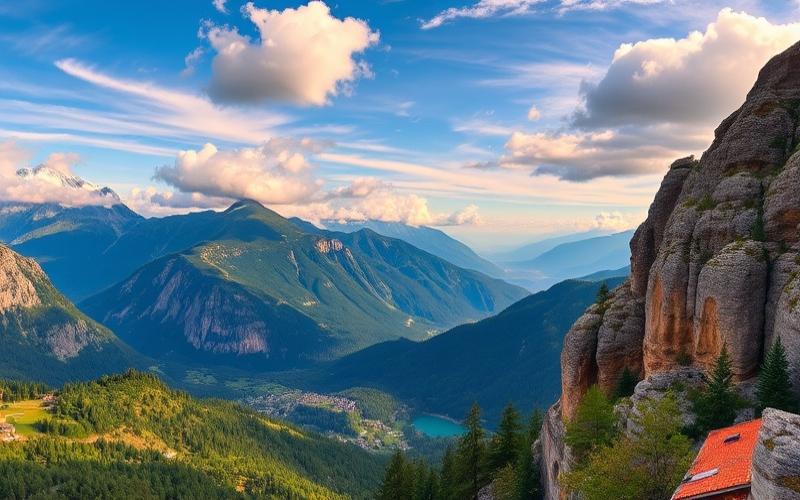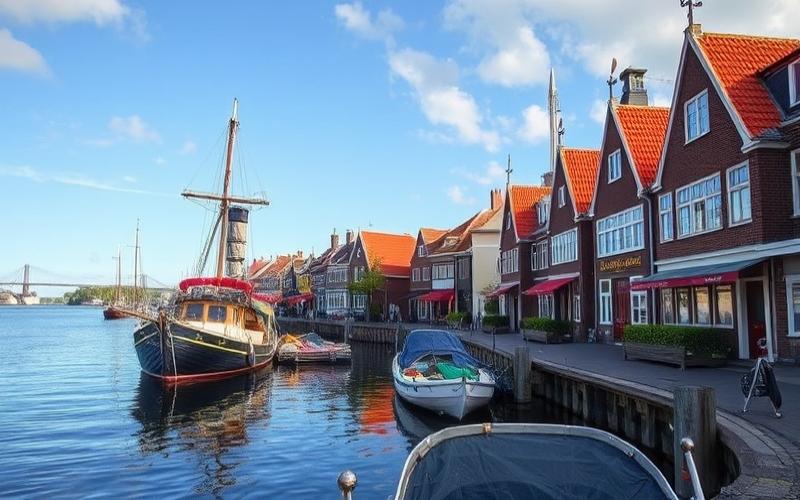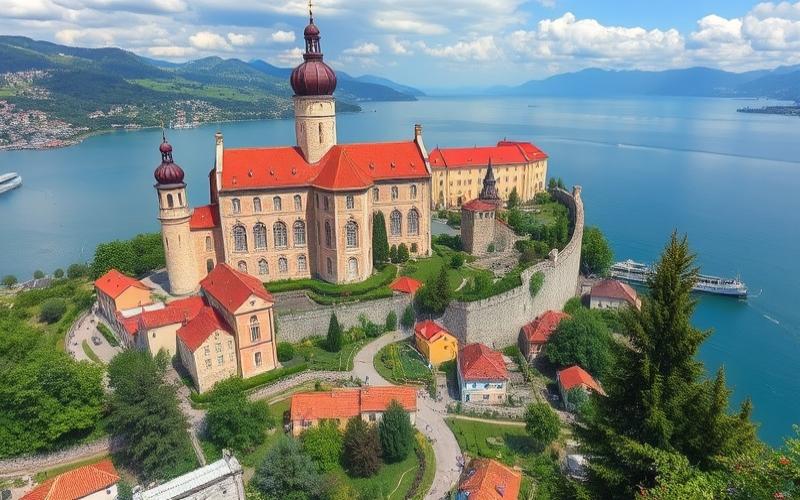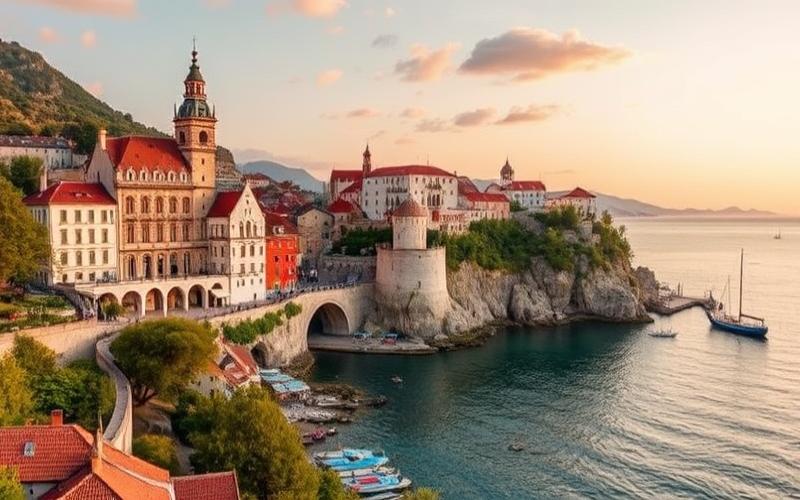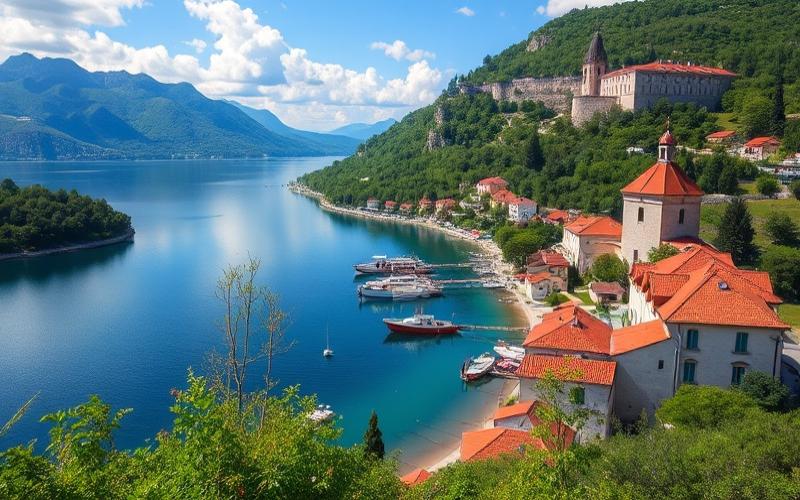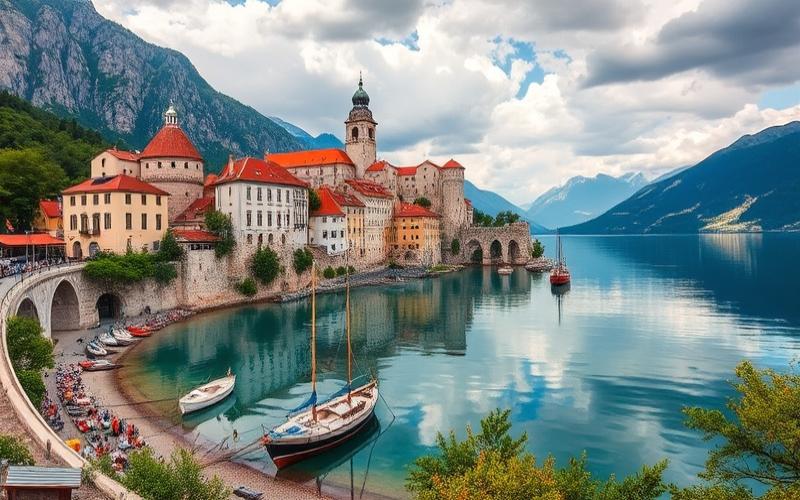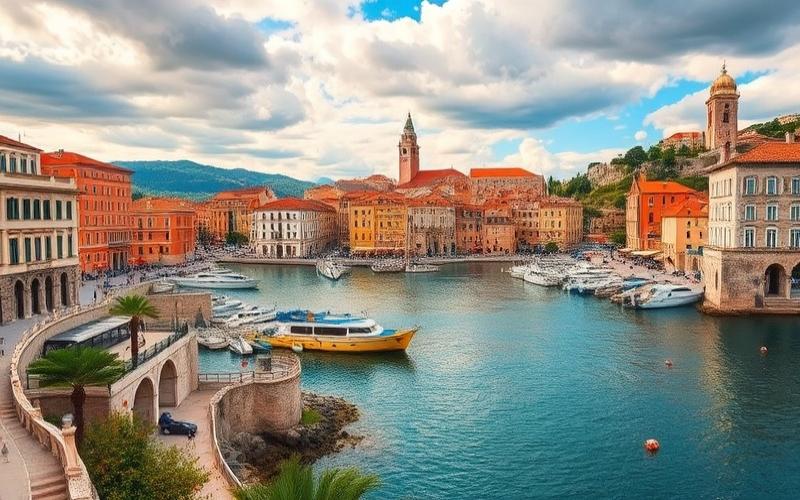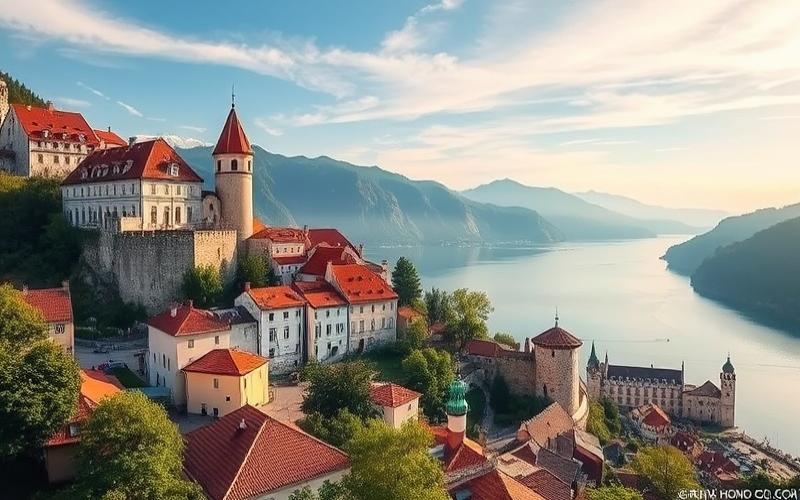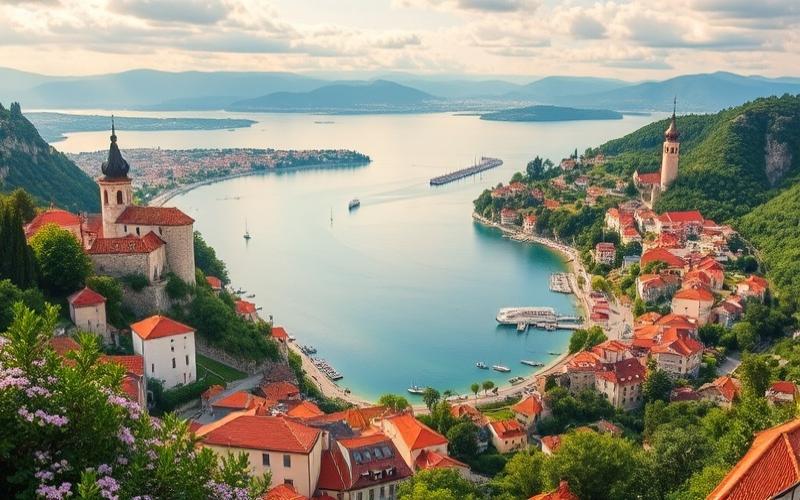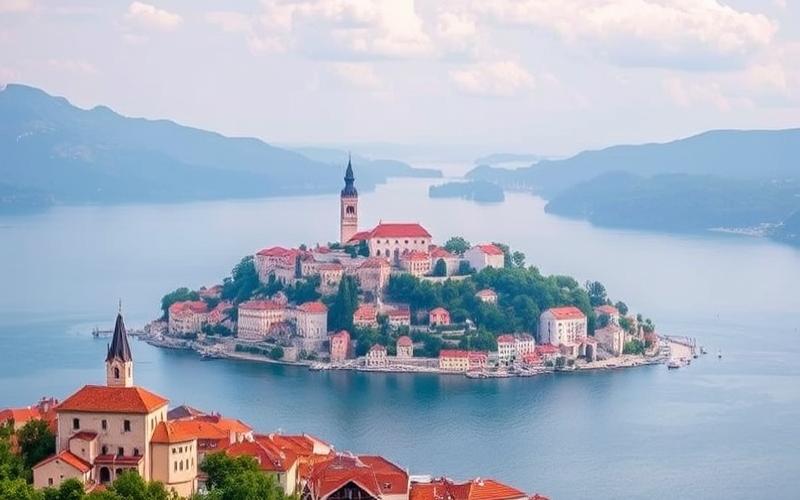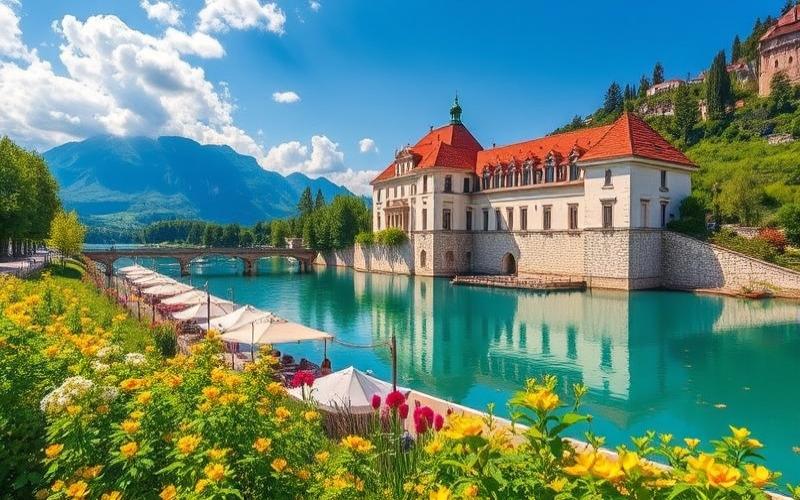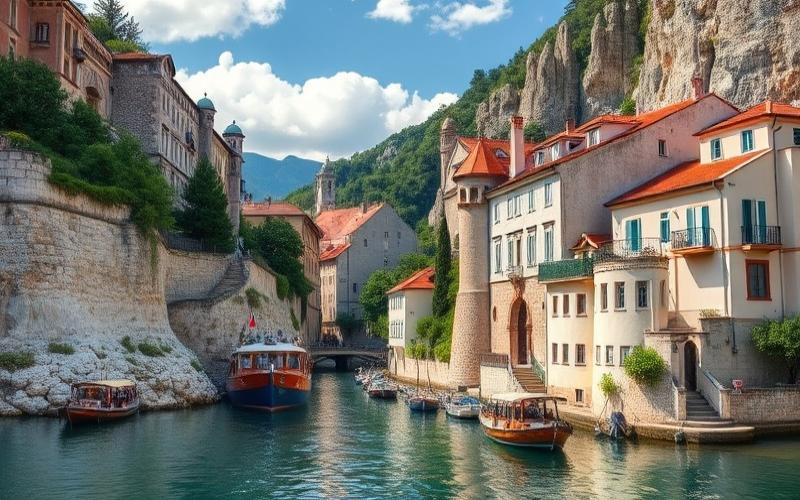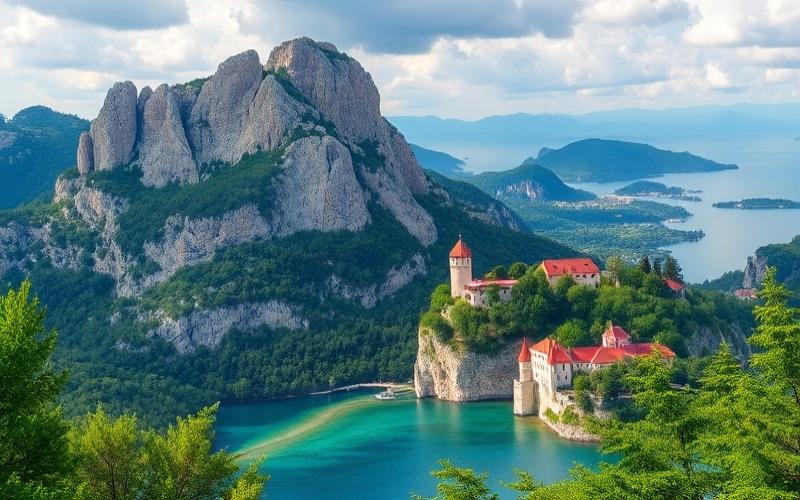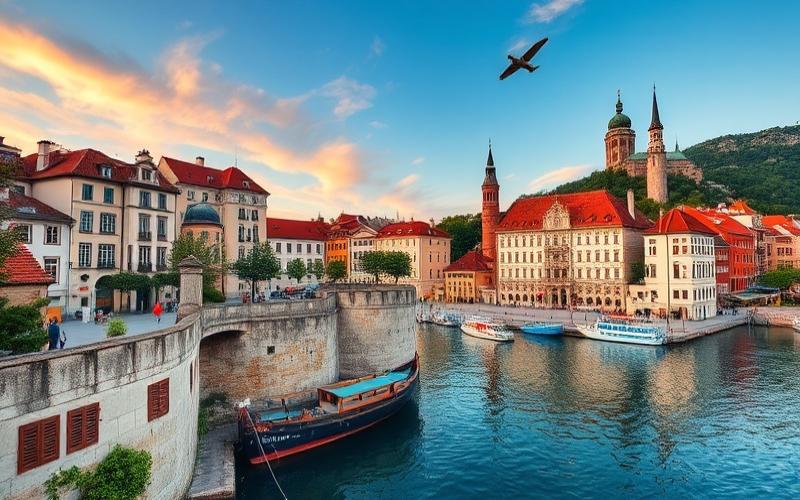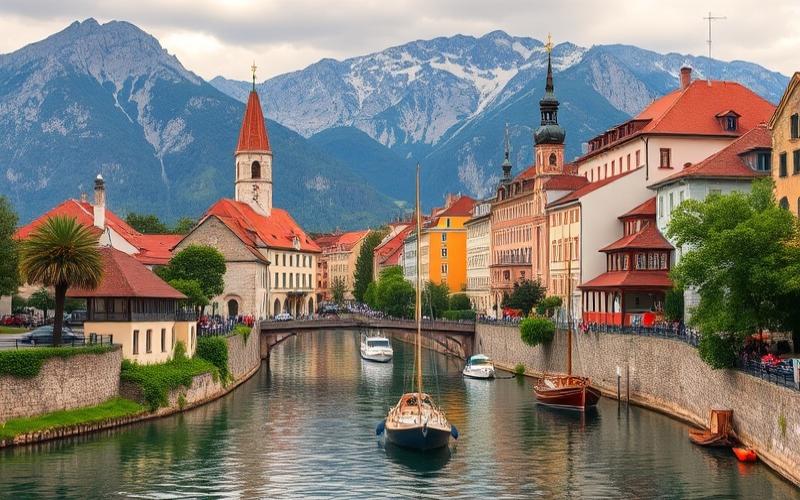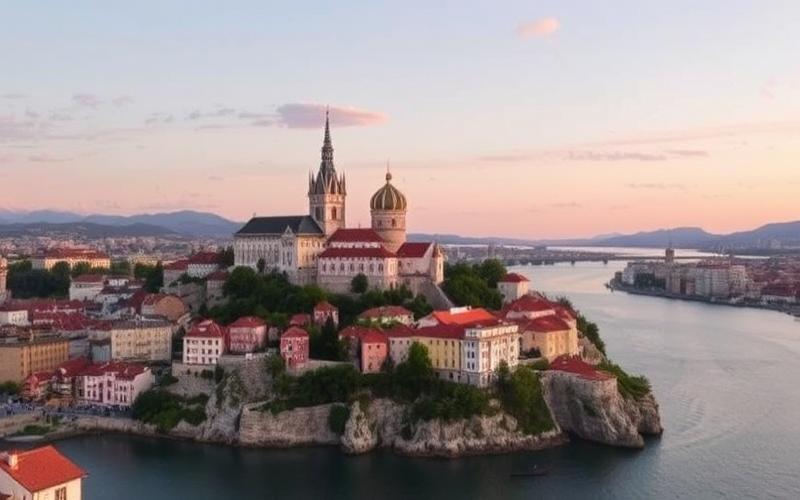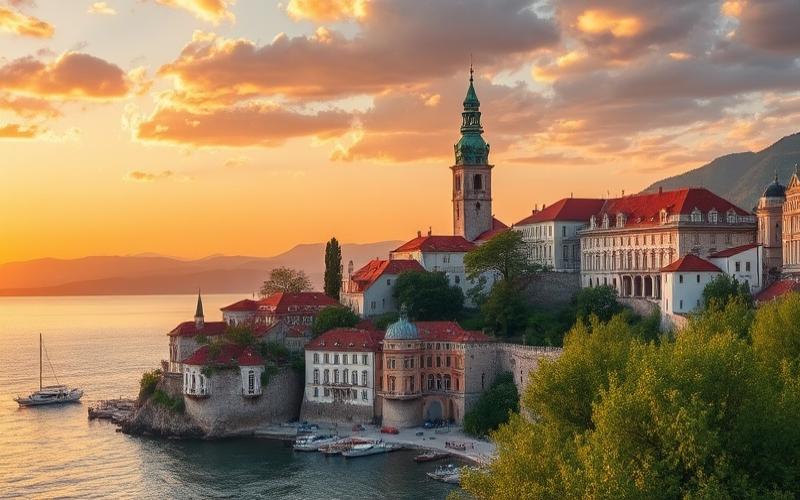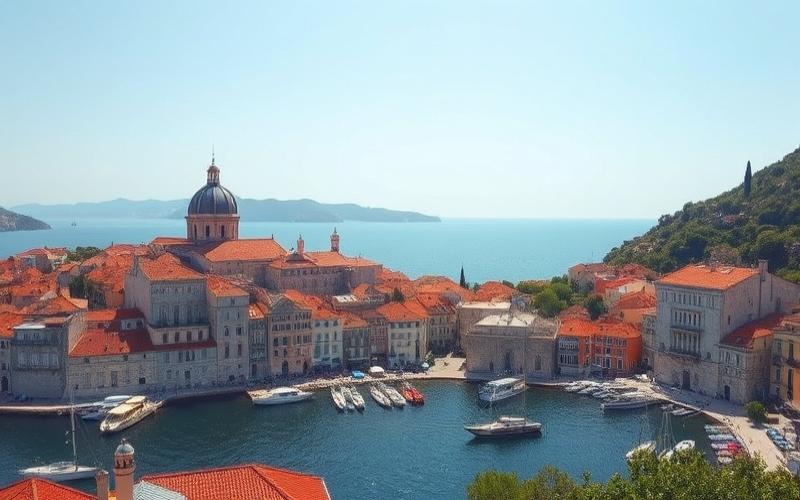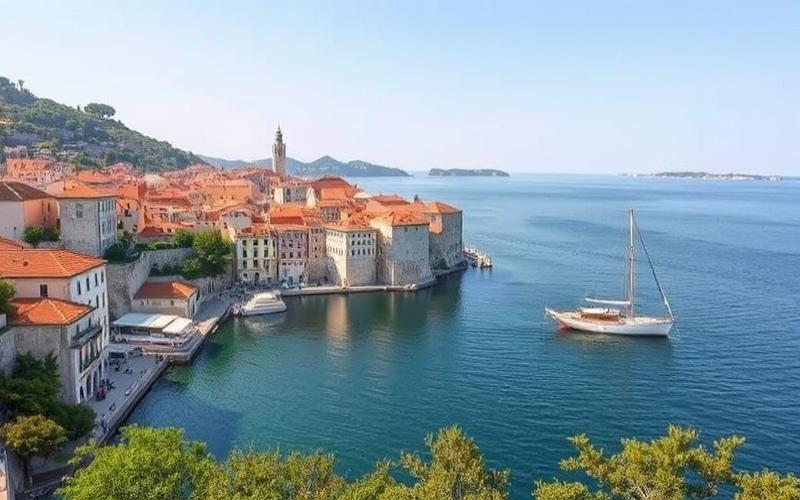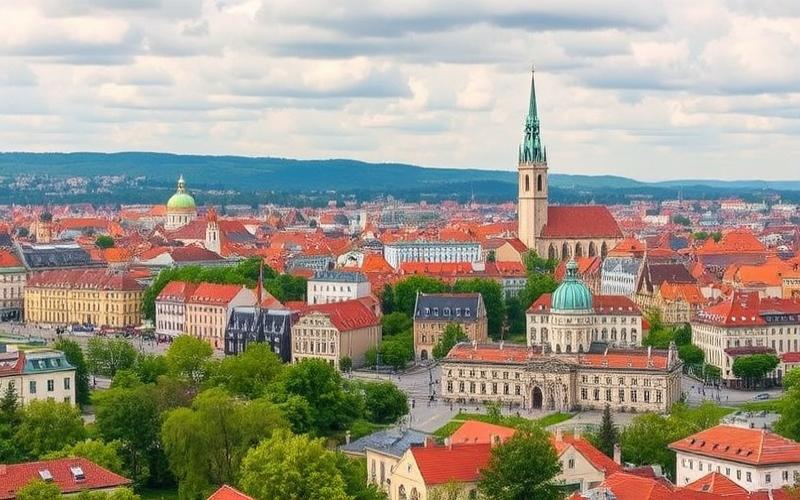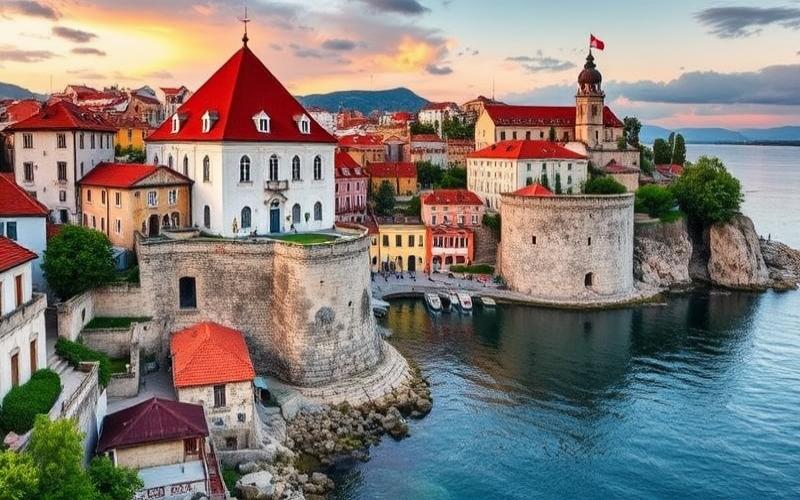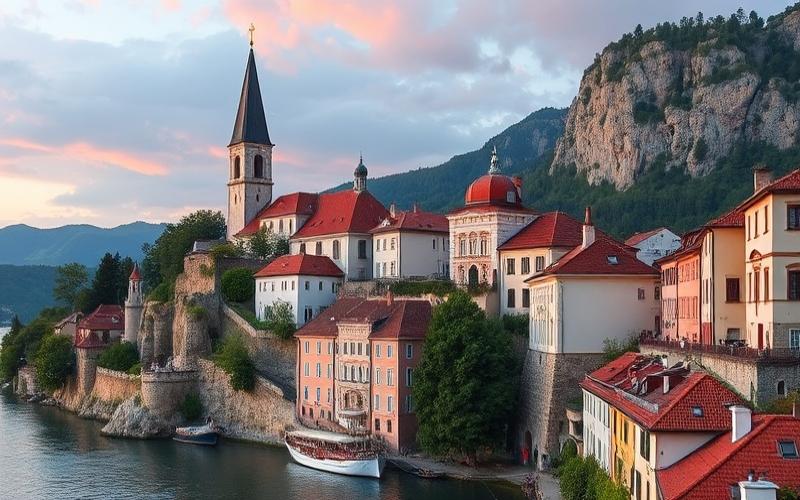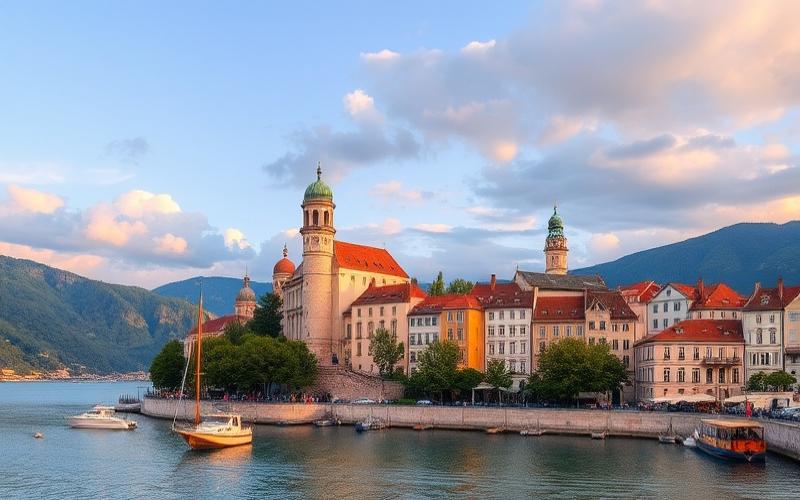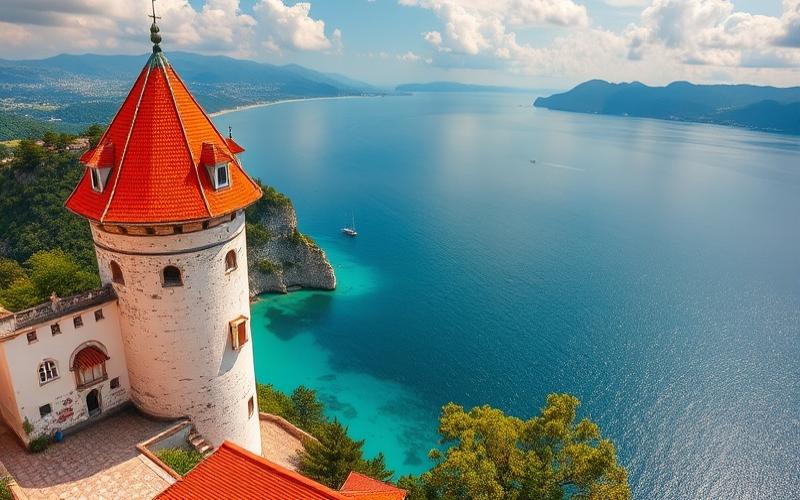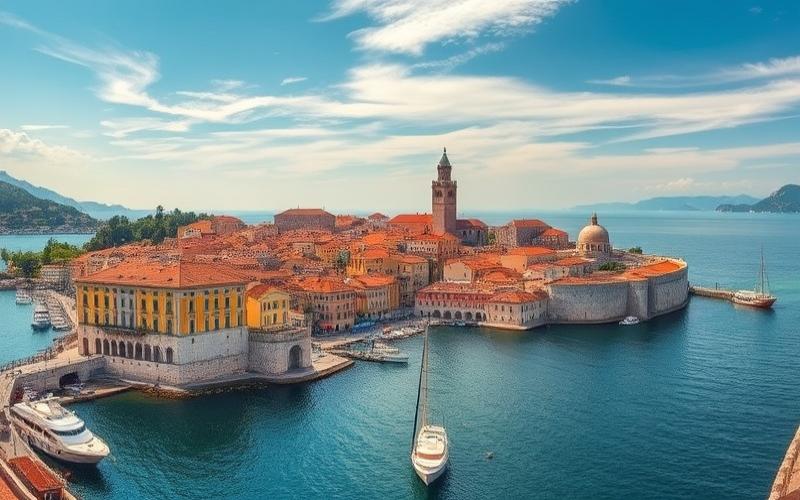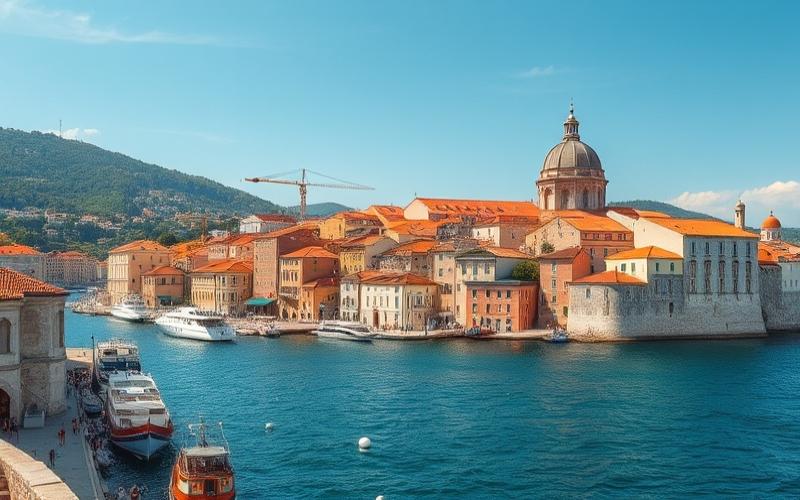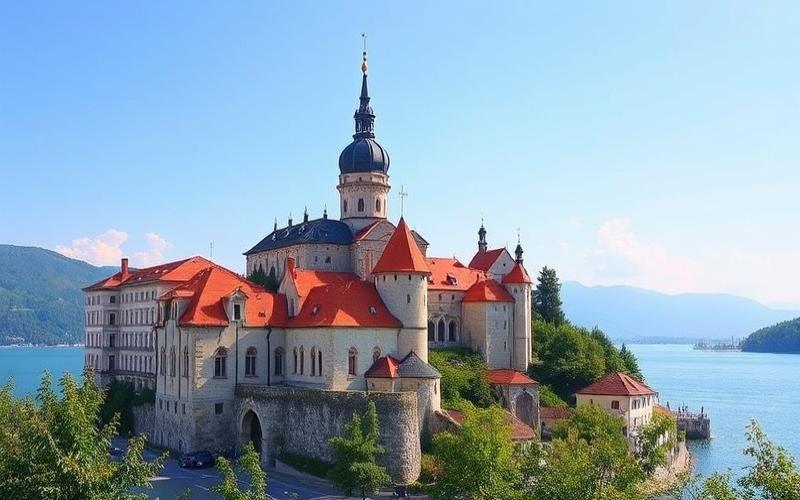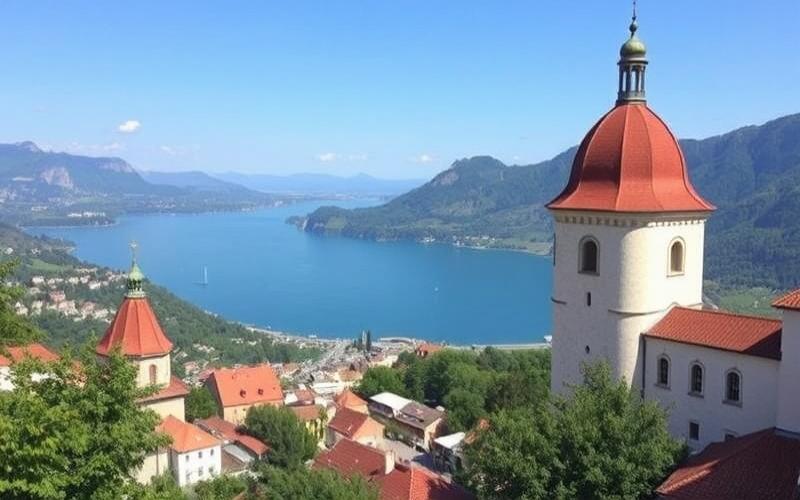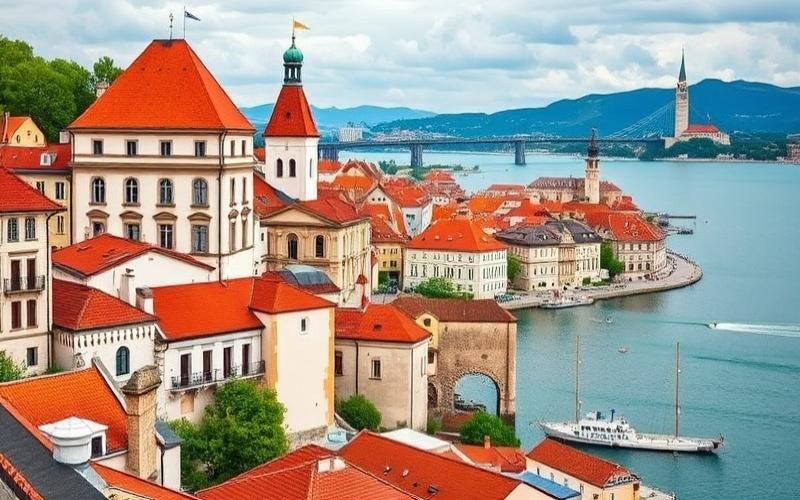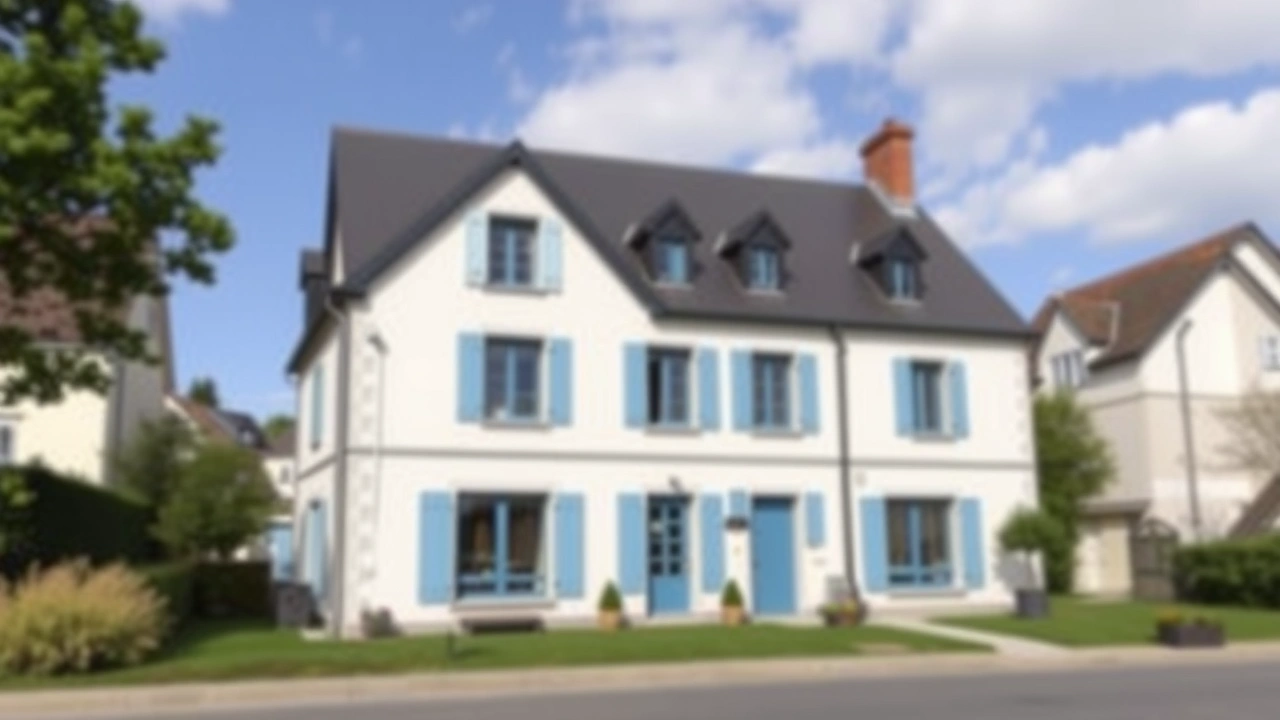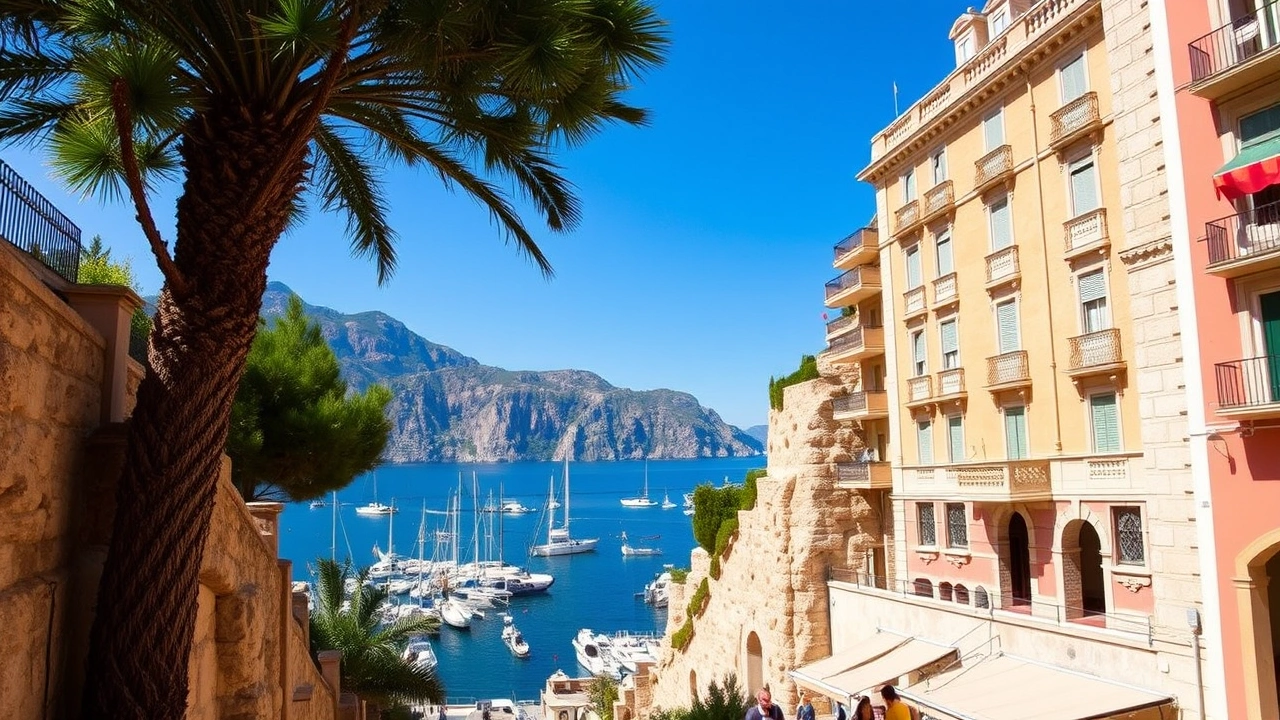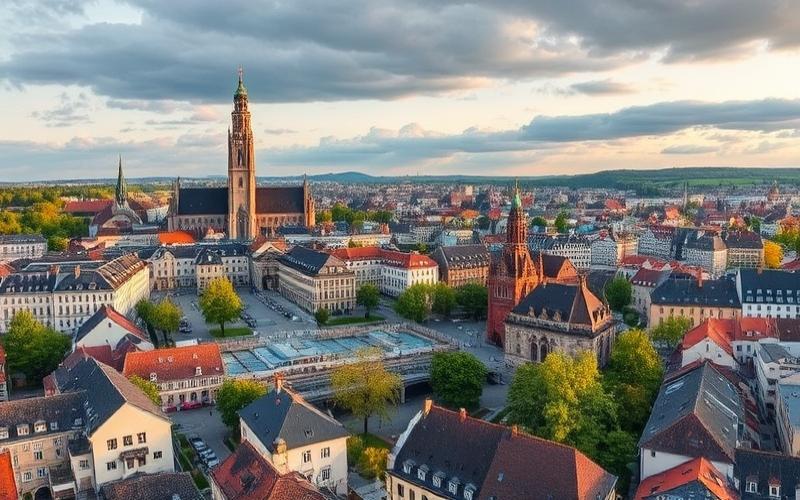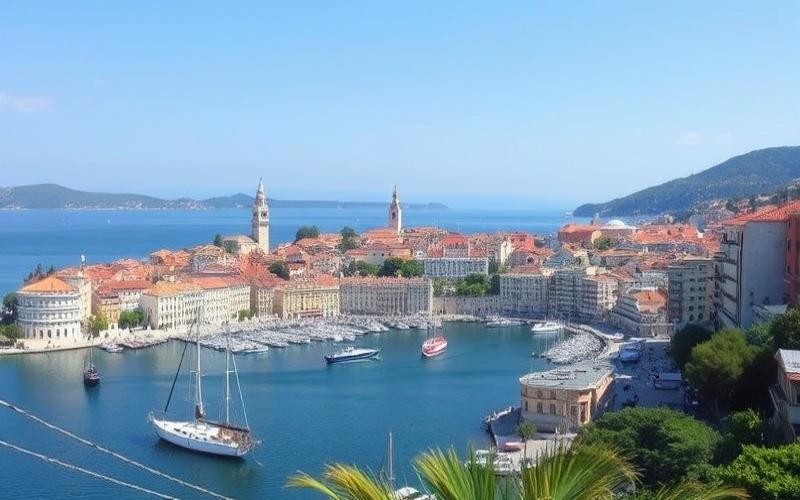
 Published on and written by Cyril Jarnias
Published on and written by Cyril Jarnias
Croatia, an Ideal Destination for Senior Expatriates
Croatia, with its picturesque coastline and historic cities, is attracting an increasing number of senior expatriates seeking to enjoy a peaceful retirement. Known for its reasonable cost of living and high quality of life, Croatia offers numerous real estate investment options that appeal to retirees from around the world.
Whether in the vibrant city of Zagreb or on the sunny beaches of Dalmatia, the choices are extensive and varied. However, certain regions particularly stand out due to their growth potential and infrastructure tailored to seniors’ needs.
Where to Invest in Croatia for a Comfortable Retirement?
Through this article, discover where it’s wise to invest in Croatia to ensure a comfortable retirement while enjoying everything this country has to offer.
Good to Know:
Croatia offers attractive tax benefits for foreign retirees, including exemptions on certain retirement income.
Moving to Croatia: Why European Seniors Are Drawn to It
Why European Seniors Are Drawn to Croatia for Relocation
Croatia is attracting more and more European seniors who wish to enjoy a pleasant, active, and affordable retirement. Several factors explain this enthusiasm:
Main Attractive Factors:
- Relatively Low Cost of Living
Daily expenses (housing, food, transportation, leisure) are significantly lower than in many Western European countries, allowing retirees to maintain a good standard of living while managing their budget. - Favorable Climate
The Mediterranean climate on the coast (mild winters, sunny summers) and diverse landscapes provide a conducive environment for year-round well-being. - Cultural Richness and Local Hospitality
Croatia offers exceptional cultural heritage: historic cities, festivals, museums, local cuisine, and a population known for its warm welcome.
Lifestyle and Activities for Seniors
| Lifestyle Assets | Examples of Activities and Benefits |
|---|---|
| Varied Landscapes | Seaside walks, hiking, natural parks |
| Human-Scale Cities | Active social life, markets, cafes |
| Local Cuisine | Tasting fresh products, typical restaurants |
| Cultural Life | Festivals, concerts, historical site visits |
| Gentle Sports Activities | Swimming, yoga, cycling |
Healthcare Infrastructure for Expatriates
- European retirees benefit from facilitated coverage thanks to Croatia’s membership in the European Union.
- Two systems coexist: public (affordable, broad access) and private (more expensive but higher quality with modern equipment).
- Several health insurance options are available, allowing expatriates to adapt to their budget and specific needs.
Administrative Ease for Establishing in Croatia
- European nationals can settle, stay, and move freely in Croatia.
- Administrative procedures are simplified: just register with local authorities to obtain a long-term residence permit.
- The Franco-Croatian tax treaty avoids double taxation on pensions, a significant advantage for optimizing one’s tax situation.
Real Estate Investment Opportunities
- The Croatian real estate market remains attractive, with prices still affordable in many regions.
- Possibility to easily acquire a primary or secondary residence, with streamlined formalities for European citizens.
- Potential for appreciation and rental investment, especially in tourist areas.
Summary of Attractions for European Seniors
- Controlled Budget and Financial Security
- Exceptional Quality of Life, Mild Climate
- Rich Cultural Heritage and Vibrant Social Life
- Medical Offer Tailored to Retirees’ Needs
- Simplified Administrative Procedures
- Accessible and Promising Real Estate Market
Croatia, with its gentle way of life, natural and cultural richness, appeals to European seniors seeking well-being, security, and a dynamic living environment for their retirement.
Good to Know:
Croatia attracts many European seniors with its affordable cost of living, allowing for a comfortable retirement without breaking the bank. Its mild and sunny Mediterranean climate is favorable for outdoor activities year-round, while its rich culture and local hospitality offer a pleasant and welcoming living environment. Healthcare infrastructure, although limited in rural areas, is generally of good quality and accessible, with a growing number of services tailored to expatriates. Administratively, establishing in Croatia is simplified by clear procedures, albeit somewhat bureaucratic, and real estate investment remains attractive, especially in coastal and historic regions. Seniors can also enjoy a wide range of activities, such as hiking in national parks or visiting UNESCO World Heritage sites, offering a pleasant combination of relaxation and cultural discovery.
The Best Cities for Retirees in Croatia
Attractiveness Criteria for Retirees in Croatia:
- Moderate Cost of Living: Croatian cities, even the most touristy ones, generally offer a cost of living lower than many Western European countries, allowing retirees to enjoy a pleasant setting without sacrificing their budget.
- Access to Healthcare: The healthcare system is a determining factor; major cities like Split, Dubrovnik, and Pula have modern hospitals, private clinics, and relatively easy access to specialists.
- Climate: The Croatian coast benefits from a mild Mediterranean climate, with moderate winters and sunny summers, particularly appreciated by seniors seeking comfort and well-being.
- Social and Cultural Activities: Coastal cities offer numerous events, clubs, and associations, promoting a dynamic social life and integration of foreign retirees.
- Safety: Croatia is recognized for its low crime rate, contributing to seniors’ peace of mind.
- Transportation Accessibility: Major cities have efficient bus networks, regional rail links, as well as ports and airports facilitating national and international travel.
| City | Cost of Living | Climate | Healthcare | Social Activities | Safety | Transportation |
| Dubrovnik | High | Mediterranean | Very Good | Very Dynamic | Excellent | Bus, airport, ferry |
| Split | Moderate | Mediterranean | Good | Lively | Very Good | Train, bus, port |
| Pula | Moderate | Mediterranean | Good | Active | Very Good | Bus, airport |
Focus on Cities:
- Dubrovnik: A UNESCO World Heritage city, it attracts for its heritage, quality medical infrastructure, and numerous cultural activities. Its historic charm and views of the Adriatic appeal to many retirees, although the cost of living is higher and tourist crowds are significant in summer.
- Split: The economic center of Dalmatia, Split combines urban dynamism, ancient heritage (Diocletian’s Palace), and green spaces (Marjan Park). The city offers modern infrastructure, many restaurants, cafes, clubs, and a highly appreciated seaside promenade. Hospitals and clinics are easily accessible.
- Pula: Located in Istria, Pula offers a more peaceful setting, known for its relaxed atmosphere, Roman amphitheater, and beaches. The cost of living is moderate, healthcare provision is satisfactory, and the city is well-served by transportation, including an international airport.
Infrastructure Adapted for Retirees:
- Adapted residences or single-level housing.
- Easy access to medical centers and pharmacies.
- Accessible and well-organized public transportation.
- Numerous parks and pedestrian walkways.
Testimonials and Experiences of Retirees:
“In Split, I found a perfect balance between urban life and tranquility. The local market is fantastic, medical care is accessible, and the climate is simply ideal.”
— Jean, 67 years old, French retiree
“Dubrovnik is magnificent, even if the high season can be hectic. Outside summer, the city becomes calm again, and services for seniors are excellent.”
— Monique, 72 years old, Belgian retiree
“In Pula, I enjoy a serene pace of life, proximity to the sea and nature. Here, everything is human-scale, which suits me perfectly.”
— Hans, 70 years old, German retiree
Key Takeaways:
Croatian coastal cities combine quality of life, safety, pleasant climate, and adapted infrastructure, making them prime destinations for an active and serene retirement.
Good to Know:
For retirees considering a tranquil life in Croatia, Dubrovnik, Split, and Pula are top choices. Dubrovnik charms with its picturesque landscapes and peaceful atmosphere, although the cost of living is a bit higher. Split offers an excellent balance with quality healthcare services and numerous cultural activities. Pula, with its more affordable real estate prices, stands out for its pleasant climate and welcoming expatriate community. All three cities benefit from infrastructure adapted to seniors, efficient public transportation, and reassuring safety levels. Retiree testimonials highlight accessibility to modern healthcare facilities and a rich social life, especially through associations and clubs dedicated to expatriates, fostering integration and well-being.
Investing in Croatian Real Estate for Retirement
Potential Tax Benefits Related to Real Estate Purchase in Croatia
- No recurring property tax on real estate, which is rare in Europe and advantageous for retirees wishing to limit fixed expenses.
- Transfer tax reduced to 3% of the purchase price, well below rates in countries like France or Spain.
- Possible exemptions and tax incentives for certain types of investments (energy efficiency, new properties), especially if the property is purchased through an adapted local structure (e.g., Croatian company).
- Taxation on rental income is set at 24%, but there are tax treaties with several European countries allowing avoidance of double taxation.
Regions Favored by Senior Expatriates for Retirement
| Region | Main Assets | Why It Attracts |
|---|---|---|
| Dalmatia | Picturesque coastline, mild climate | Sea views, peaceful life |
| Istria | Cuisine, cultural heritage | Strong Francophone community |
| Dubrovnik | Historic city, cosmopolitan ambiance | Developed medical services |
| Croatian Islands | Preserved nature, tranquility | Absolute calm |
These regions offer a serene and secure living environment as well as easy access to tourist and medical infrastructure.
Types of Properties Available
- Seaside villas: breathtaking views of the Adriatic, private gardens
- Modern apartments in city centers: close to shops/services
- Traditional houses in the countryside: authentic charm
- New residences with collective amenities (pool/gym)
Coastal villas are particularly sought after for their seasonal rental potential.
Important Legal Considerations for Foreign Investors
Essential points to check before purchase:
- European Union nationals can freely acquire residential properties; outside the EU, certain restrictions persist depending on the type or location of the property.
- Mandatory verification of the land registry (“Zemljišna knjiga”) to ensure clear and dispute-free ownership.
List of main procedures:
- Mandatory notary signature
- Registration with the local tax office
- Possible obtaining of an OIB number (“Croatian tax number”)
- Recommended recourse to a specialized local lawyer
Costs Associated with Purchase and Property Maintenance
Indicative list of fees:
- Transfer tax: approx. 3% of the price
- Notary/lawyer fees: variable depending on complexity (generally between 0.5–1.5% of the price, sometimes more)
- Annual fees (garden/pool/maintenance): depends on type/property; no significant annual property tax (~€2–3 per m²/year)
Numerical example:
For a villa purchased at €600,000, transfer tax = €18,000, legal fees approximately €6,000 – €9,000, estimated annual maintenance ~€2,500–€4,500, depending on services.
Tips to Maximize Real Estate Investment Return in Croatia
Key points adapted to the current market:
Prioritize properties located in dynamic tourist regions, offering strong seasonal rental potential.
Strategic list:
- Invest in a new or renovated property allowing additional tax exemptions
- Optimize rental management through specialized local agencies
- Choose a location with easy access to medical/commercial amenities appreciated by senior expatriates
Current trends:
Demand remains high especially on the Adriatic coast; prioritizing sea-view villas or high-end apartments in cities allows continuous appreciation thanks to growing international tourism.
Good to Know:
Senior expatriates choosing Croatia for investment often find interesting opportunities thanks to tax benefits, such as the absence of an annual property tax. Regions like Istria and Dalmatia are particularly favored for their Mediterranean climate and proximity to the sea, offering properties such as seaside villas or modern apartments in city centers. However, it is crucial to consider legal restrictions for foreign investors, sometimes requiring special approval for property purchases. Maintenance costs can vary, especially when considering rental management services to maximize returns. It is advisable to stay informed about market trends, such as the continuous increase in demand for properties in tourist areas, thereby increasing resale value and rental potential.
Professional local support – specialized lawyer & tax advisor – is strongly recommended to optimize your investment while securing each legal step.
Understanding the Cost of Living for Senior Expatriates in Croatia
The cost of living for senior expatriates in Croatia is among the lowest in Europe, allowing significant monthly savings compared to France or other similar European countries. Expenses vary depending on lifestyle, chosen region, and type of consumption.
Housing
- Rents remain affordable despite a recent increase.
- A 2-bedroom apartment in Zagreb typically costs between €380 and €550, depending on location.
- In city centers or tourist areas (Dubrovnik, Split), prices are higher; moving away from urban centers allows substantial savings.
- In rural areas or less touristy towns, it is possible to find even cheaper housing.
| City | Monthly Rent 2BR (approx.) | Average Total Living Cost/Month |
|---|---|---|
| Zagreb | €380 – €550 | ~€624 excluding rent |
| Split | ~€340 – €500 | ~€580 excluding rent |
| Dubrovnik | >€500, sometimes very high | >€650 excluding rent |
| Rural Areas | €250 – €400 | ~€500 excluding rent |
By wisely choosing their region and consumption habits, it is entirely possible for a senior expatriate retiree in Croatia to optimize their budget while maintaining an excellent standard of living.
Good to Know:
For senior expatriates considering moving to Croatia, understanding the cost of living is essential for a serene retirement. Housing in Croatia can be very affordable, especially in rural regions like Slavonia, compared to urban centers such as Zagreb or Split where prices are higher. Food remains relatively inexpensive, especially when favoring local markets. Healthcare services are generally of good quality and accessible, but it is advisable to subscribe to international health insurance for specific senior care. Public transportation is economical, although owning a car is preferable in rural areas. For leisure, Croatia offers numerous activities at moderate prices, particularly in tourist areas during the off-season. Expatriates can benefit from certain tax advantages depending on their country of origin, including bilateral agreements that limit double taxation. To effectively manage their budget, it is useful to analyze purchase and rental options, compare health insurance, and fully utilize senior discounts available in transportation and cultural activities.
Disclaimer: The information provided on this website is for informational purposes only and does not constitute financial, legal, or professional advice. We encourage you to consult qualified experts before making any investment, real estate, or expatriation decisions. Although we strive to maintain up-to-date and accurate information, we do not guarantee the completeness, accuracy, or timeliness of the proposed content. As investment and expatriation involve risks, we disclaim any liability for potential losses or damages arising from the use of this site. Your use of this site confirms your acceptance of these terms and your understanding of the associated risks.

